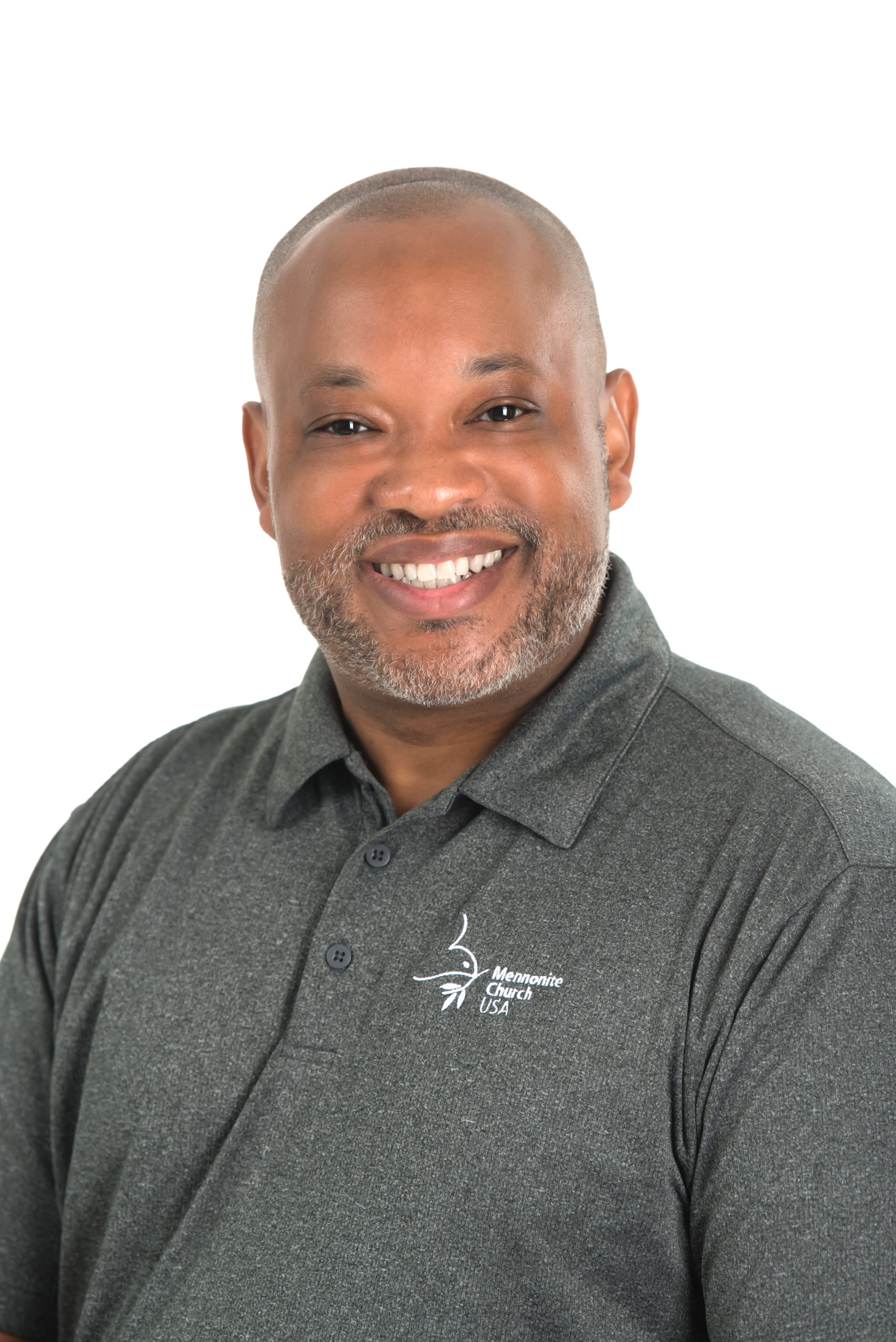 Glen Guyton is the executive director of Mennonite Church USA.
Glen Guyton is the executive director of Mennonite Church USA.
Warning: If you are not a fan of Star Trek or classic literature, this post may confound you.
Ever wonder what Jean Luc Picard and some Mennonites have in common? Lines in the sand, especially when it comes to articulating our fear and facing uncertainty.
In Star Trek: First Contact, the Borg are trying to prevent first contact with alien life. I won’t bore you with the whole temporal displacement backstory. Just know that the USS Enterprise arrives hundreds of years in its past on April 4, 2063, the day before humanity’s first encounter with alien life. While Captain Picard is fighting space robots, Commander William T. Riker makes sure Earth gets its first warp drive launched (progress). But the Borg and Picard have a long, complicated history. The Borg captured, tortured and assimilated Picard, and although “resistance is futile” it is apparently very painful.
When Picard engages the Borg, wave after wave of fear floods his soul, and he comes to a moment where he declares, “We draw the line here. This far and no further.” The Borg are trying to rewrite history and Picard is having none of it. Picard launches into an angry fit, destroying both furniture and relationships.
That same narrative plays out in Mennonite Church USA — not with space robots, but our documents. People often like to share with me where their line is. Then I begin to wish space robots would come and save me, but it seems resistance to our documents is as futile as resisting the assimilation of the Borg. What I find most frustrating by our “lines in the sand” is that most lines are drawn in ignorance. As Henry Melville wrote in Moby Dick, “Ignorance is the parent of fear.” That fear unchecked becomes our devil and impedes our ability to ask the right questions, to adequately hear the response and for us to live into our mission of bringing healing and hope to the world. We chase our white whale, or our Borg to our destruction and we miss the beauty of the open seas.
For some in our denomination, specific documents are our line. For others, the definition of marriage is the line. In truth, we all have lines. Each of us has boundaries. Some may be set in stone, some may be drawn in the sand, but we all have lines. I prefer my lines to be drawn in the sand where they are subject to the wind and movement of the Spirit. I trust God’s ruah, a Hebrew word meaning Spirit or wind, which adjusts and bends my boundaries of fear toward God’s divine will and purpose for my life. I cannot set my feet or understanding so firmly that I am no longer subject to the transformation of the Holy Spirit.
The leadership of Mennonite Church USA has set our focus on following Jesus, witnessing to God’s peace and experiencing transformation. Part of that includes our #BringthePeace campaign. #BringThePeace is Mennonite Church USA’s call to action for individuals and congregations to extend peace in our communities. #BringThePeace is also our prayer, inviting God to bring the peace that expands our capacity for empathy, compassion and love that actively seeks to dismantle oppression and violence.
As a leader, people try to put me inside a box. “What is your line and where are you leading us?” They want to know what their leader’s views are. I think Tom Yoder Neufeld summed it up perfectly at #MennoCon19 with two statements: “Transformation happens in the church” and “The church is messy, praise be to God.”
Without God I know that I am not adequate to lead Mennonite Church USA, and I am wise enough to know that it is the power of the Holy Spirit that brings about transformation. I hope that my life, rather than my words, is the true testimony of my life. I also thank God for grace and mercy that fill the cracks of my bias and inadequacy.
The mission statement of this church says, “God calls us to be followers of Jesus Christ and by the power of the Holy Spirit to grow as communities of grace, joy and peace so that God’s healing and hope flow through us to the world.” It’s a big world, and our lines can limit our ability to be conduits of God’s peace.
If we spend too much time chasing whales or fighting space robots, we box ourselves into a place that will ultimately lead to our destruction. Instead of reaching the world, we become more and more withdrawn. We become more and more isolated not only from the thing we fear but from the transforming power of God. If we are not careful, our lines and boundaries will become our prisons. I pray that every member of MC USA will be open to where God is leading us in the 21st century.

